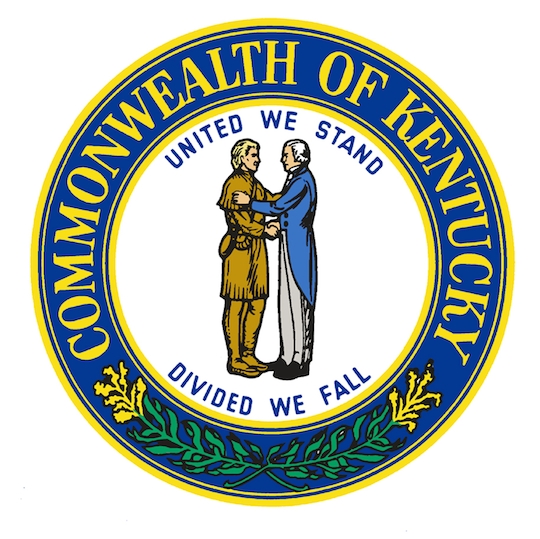The Kentucky Kernel’s six-year legal battle with the University of Kentucky has come to an end.
The open records dispute that recently concluded began in 2016 with The Kernel’s request for records relating to the University’s investigation into student allegations of sexual harassment leveled against tenured entomology Professor James Harwood.
THE WHO, WHAT, WHEN, WHERE, AND HOW OF UNIVERSITY OF KENTUCKY V. THE KERNEL
The newspaper published two major reports and an editorial on August 26, providing insight into why the battle ended just short of the finish line, the content of the redacted documents, and what “generations” of aspiring journalist learned about a monolithic administration that demonized and sued them.

WHAT THE (REDACTED) DOCUMENTS REVEALED:
In a story written by reporter Sarah Michels, we learn, among other things:
“It is unclear, due to document redactions concerning the specific details of Harwood’s alleged behavior, whether his alleged actions included both sexual harassment and sexual assault or solely sexual harassment.
“According to the investigative report, Harwood ‘perpetuated a hostile environment for her and other students … by forcing his students to attend social functions, imbibe alcohol, and by making comments and physical contact that were inappropriate given their relationship.’
“Once the investigation concluded, the IEEO submitted their recommendations of termination and tenure revocation. UK spokesperson Jay Blanton told the Kernel that the university did not pursue those recommendations because they would take too long, and the university wanted ‘to mitigate harm to the victim survivor’ and ‘remove the threat as quickly as possible,’ in accordance with federal laws concerning sexual harassment cases.
“When charges are brought against professors, UK has a lengthy termination process by design with multiple opportunities for appeals and hearings. Blanton said this process would have taken one to two years.
“‘As a result, the quickest way to remove the threat from the campus was to seek a settlement, the result of which was the person in question leaving the university in a manner of weeks, rather than years,’ Blanton told the Kernel. ‘It is not, by any stretch of the imagination, a perfect system. But those were the choices the institution had. As always, we sought to do what we believed would be in the best interests of the well-being and privacy of the victim survivors.’

“As part of his settlement with the university, Harwood agreed to resign and cut off direct contact with faculty, staff and students unless explicitly approved. In return, the university would not revoke his tenure and continue paying him a $109,900 salary with benefits until either August 2016 or upon finding employment elsewhere.
“The agreement included ‘confidentiality’ and ‘non-disclosure provisions,’ which ‘effectively prevented UK from warning other potential employers of the danger he posed to students,’ Kernel attorney Tom Miller said.”
THE CIRCUITOUS LEGAL BATTLE
In a separate report, Emily Girard modestly suggests that the six-year-long juggernaut waged by the University against the newspaper “prompted wide responses both at UK and across the state.”
The lawsuit began in victory for The Kernel in the Kentucky Attorney General’s Office and effectively ended in victory for The Kernel at the Kentucky Supreme Court. It was, in fact, the subject of multiple articles in national publications, garnering the attention (and criticism) of open government experts and exposing a culture of secrecy at the University of Kentucky.
Girard writes that at the apparent end of the battle:
“The Kernel received the documents on May 28, 2021, but after reviewing them, objected, stating they were overly redacted. It requested that UK reveal the details of Harwood’s described misconduct, the locations where it took place and the ‘angry emails’ Harwood allegedly sent to students involved with the investigation.
“UK refused, saying this information could potentially identify the victims.
“Rather than take UK back to court, the Kernel decided alongside its attorneys in August to not pursue any further litigation so as to not potentially reverse any progress made in the Kentucky Supreme Court win. If the Kernel had challenged the redactions and lost, the university may theoretically have been able to cite the court opinion as legal precedent to redact important investigation details in future open records requests.
“Miller said his main concern was that the judge would disagree with the Kernel and ‘write an opinion that would somehow restrict the ability of the Kernel and the students to get information and documentation from UK going forward,’ had the Kernel decided to challenge the redactions.”
We agree.
This was a calculated risk that, in the end, The Kernel and its legal team wisely did not take. University of Kentucky v. The Kernel is a strongly worded Supreme Court opinion that has value far beyond the narrow legal issue presented.
Most importantly, it is a clarion call to public agencies that a boilerplate response to an open records request “ is not how the ORA process works.”
University of Kentucky v The Kernel will be cited by open records requesters (and litigants in open records disputes) for decades to come.
Univ. of Ky. v. Kernel Press, Inc., 620 S.W.3d 43 (Ky. 2021)
THE KERNEL HAS THE FINAL WORD
On August 26, the newspaper’s editorial board had the final word on its protracted legal battle with the University of Kentucky’s obdurate administration:
“Why did UK allow [Professor James] Harwood to resign? Why did it keep the documents private for so long?

“Money was not an issue for UK, as [Spokesperson Jay] Blanton said the university spent $52,368.47 for its own outside counsel for the case, in addition to paying $30,000 of the Kernel’s legal fees.
“The answer: UK wanted to protect the brand of being a safe environment for students to live and learn. What good parent wants to send their child to a school with a sexual predator among its faculty? The university knows that a happy student becomes a happy alumnus, ready and willing to keep supporting their alma mater for years after walking across the stage at graduation.
“UK tried to play the long game.
“In reality, UK has only shown it’s willing to put the safety of its students at risk in order to maintain an appealing image.
“But in the end, after six long years of fighting Kernel journalists, advisors and attorneys, UK has reached the same outcome it would have by following the law and turning investigation documents over to the Kernel.
“Thanks for playing, UK. But when we lose sight of the truth, no one wins.”
Declare victory and depart the field, Kernel Press. You never lost sight of the truth. Your hard fought battle is won.
Amye Bensenhaver is a retired assistant attorney general, open government advocate, and blogger for the University of Kentucky Scripps Howard First Amendment Center. Along with Jennifer P. Brown, former editor of the Kentucky New Era and publisher of an online news site in her hometown of Hopkinsville, she helped establish the Kentucky Open Government Coalition to provide a voice for all citizens who support government transparency and accountability.

















